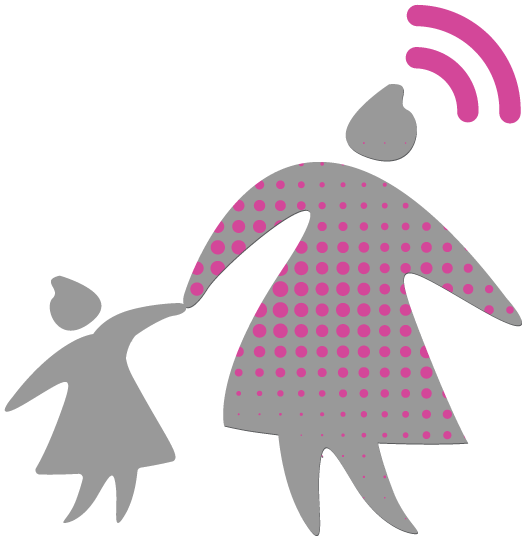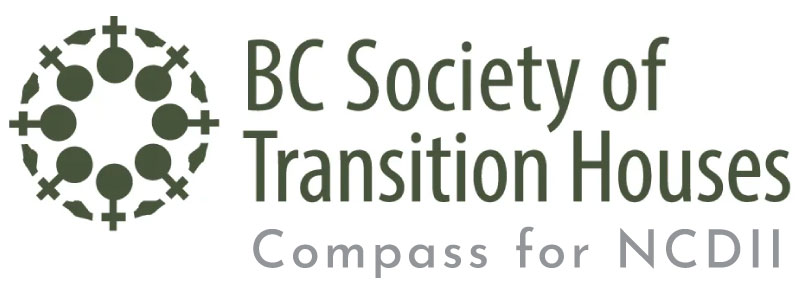About the Compass Project
The Compass Project is an online tool that supports survivors and anti-violence workers who are impacted by the non-consensual distribution of intimate images (NCDII).
The tool helps pinpoint relevant legal and non-legal options to respond to non-consensual image sharing.

Non-consensual Disclosure of Intimate Images (NCDII)
Non-consensual disclosure of intimate images (NCDII): When someone knowingly publishes, distributes, transmits, sells, makes available, or advertises an intimate image of a person where the person in that image did not give their consent for it to be shared. In other words, this is when someone posts, shares, or threatens to share a nude or sexual photo of you without your consent.
Technology-Facilitated Gender-Based Violence: When technology is misused to harm or control someone, such as when technology is used to commit violent or abusive acts like harassment, stalking, sexual assault, or sharing intimate images without consent.
You can read more about these definitions:
Tech Safety Canada: What to do if someone has shared or threatened to share your intimate image
Tech Safety Canada: What is Technology-Facilitated Gender-Based Violence
BCSTH has found that 89% of our member’s staff have supported survivors who experienced technology-facilitated gender-based violence (TFGBV), such as threats and harassment via text messages or social media, NCDII, location tracking, and/or stalking (BCSTH, 2022, 8).
In 2024, Women’s Shelters Canada found that 1 in 2 Canadian frontline workers supported survivors who had experienced NCDII The Compass project responds to reported increases in NCDII (Government of BC, n.d.), as well as the need for approachable, trauma-informed resources that can be easily located by survivors.
What kinds of resources can I find on Compass?
The Compass Tool provides non-legal and legal options in four categories.
Community Supports and Resources
Help is available. There are community resources including anti-violence organizations, hotlines, and services specifically supporting people with experiences of image-based abuse.
These resources include local, provincial and national supports, as well as some tools that were developed by international organizations.

Tech Safety Resources
Survivors have a right to use technology. If someone is experiencing NCDII, these tech safety resources provide a resource pathway for the survivor.
The Tech Safety Resources provide information to victims of NCDII and anti-violence workers as to how they can adjust the settings on devices and accounts to prevent or respond to image based abuse. These resources include reporting options to remove the online images and discuss safety considerations and safety planning.

Personal and Relationship-Based Solutions
People who experience NCDII often reach out to friends, colleagues and family for support. Relationship-based and personal solutions are communication and interpersonal strategies that can be used to respond to image sharing that do not rely on formal responses like legal remedies. It’s possible to use entirely personal and relationship based solutions, or a combination of legal and non-legal responses to respond to the NCDII.
This section provides guidance for communicating with the person, or people, who shared the image without consent when asking them to delete it. It also provides guidance on how to tell family, friends and colleagues about what has happened and the ways in which they can help.
Legal Options
This Compass Tool resource category provides a summary of civil and criminal laws that respond to NCDII and other forms of image-based abuse (IBA) that may be relevant for survivors and the people supporting them in BC.
Note: There is no legal advice contained in this resource. All content is for general informational purposes only. Legal advice must come from a lawyer who can advise on whether you should take certain actions in relation to your matter.

About the BC Society of Transition Houses
The BC Society of Transition Houses is a member-based, provincial umbrella organization that, through leadership, support and collaboration, enhances the continuum of services and strategies to respond to, prevent and end violence against all women, children and youth.

About the Tech Safety Project
BCSTH’s Tech Safety Project supports BC anti-violence workers in identifying, preventing, and responding to Technology-Facilitated Gender-Based Violence (TFGBV).
The projects’ technology safety resources and training assist anti-violence workers to learn how to support women and young people experiencing technology-facilitated violence including how to use technology safely and to incorporate these practices into safety plans.
Acknowledgments
We gratefully acknowledge the generous contributions of the following organizations, and thank them for their support.
The Tech Safety Project started at The BC Society of Transition Houses in 2007. In 2022, it was scaled up to the National level through the Tech Safety Canada Project at Women’s Shelters Canada. This tool has adapted resources from the BCSTH Tech Safety Project and the Tech Safety Canada project.

Funding by the Government of Canada.
Financé par le gouvernement du Canada.
Would you like to provide some feedback about this toolkit?
Participation is optional and confidential.

